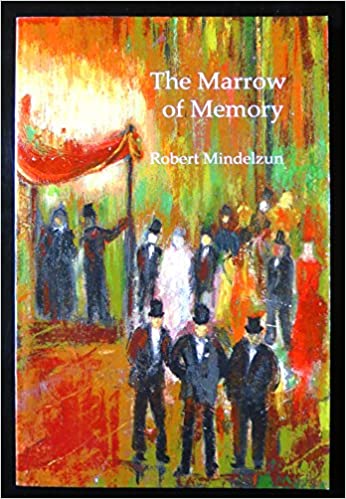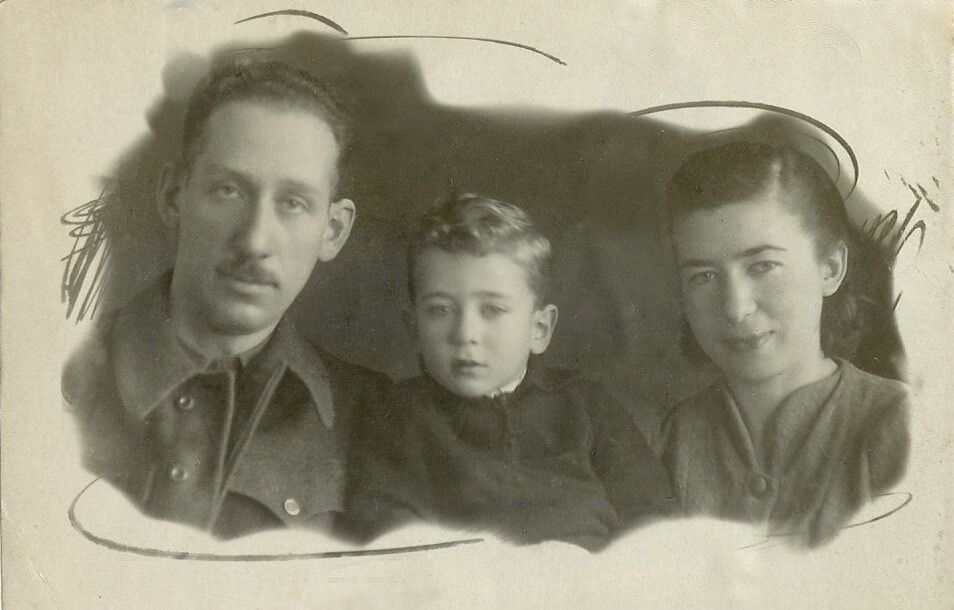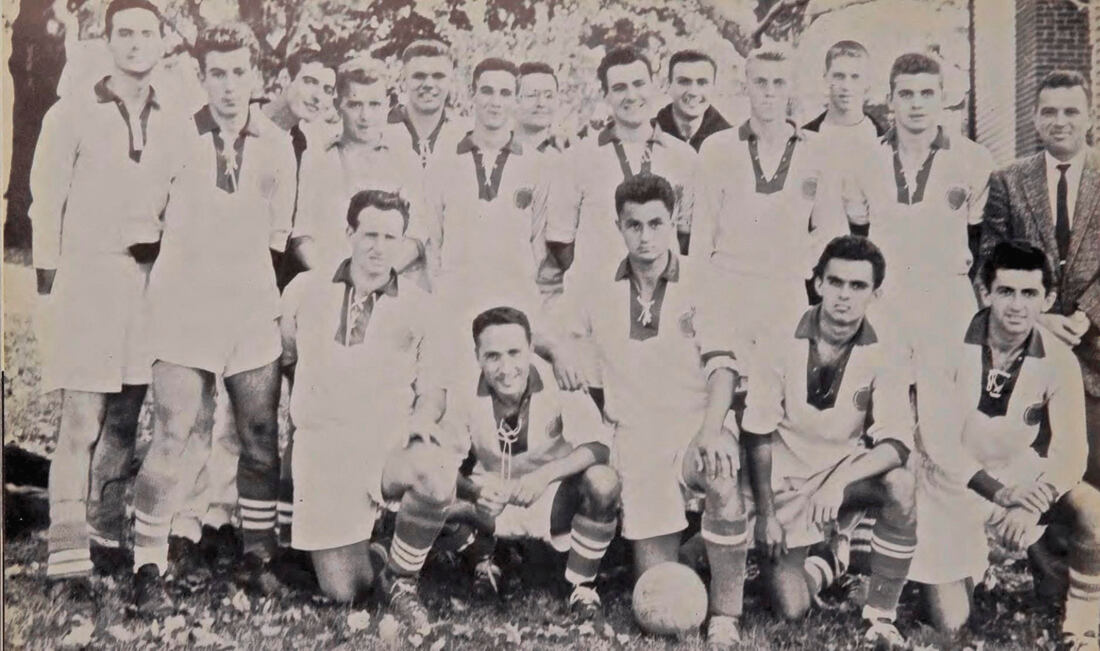|
Bob Mindelzun was a great soccer teammate. He knew the sport, had played it in Poland, and was big enough and fast enough to be one of the best players on our team. He laughed easily and was good company on the buses and subways that took us to road games in Queens and Brooklyn. He spoke English with a thick accent, which was not unusual in Jamaica High School in central Queens. I remember teammates from Italy, France, Sweden, Venezuela, Puerto Rico, and I think Greece. Our great captain, Bob Seel, had learned his soccer in the German-American clubs of Ridgewood. We did not talk about backgrounds, not in the mid ‘50s, when the world was still processing what exactly had happened in the ‘30s and ‘40s. The wounds were so recent that words like “Shoah” and “Holocaust” were not part of our vocabulary, not yet. After graduation, I kept in touch with many accomplished and interesting friends from Jamaica; five of my teammates became doctors, including Dr. Robert Mindelzun, radiologist and professor at Stanford University. I have not seen him since graduation, but lately I realized that Bob came from Eastern Europe. Recently, we talked on the phone, and I asked a few questions, and he said, “Would you like to see my book?” Yes, I said. Please. Bob wrote and published, in 2012, a book entitled “The Marrow of Memory,” about the terrible journey of his father and mother and their only child, from bombed-out Warsaw, thousands of miles further north into Russia, first to the Komi region, with its Finno-Ugric tribal history, near the Arctic Circle, to camps for refugees, the most endangered of whom were Jews, like the Mindelzuns. In this time of pandemic….and a rampaging American president…it is easy to blurt that life has never been this dangerous. Bob’s book tells of other times.  Book by my high-school soccer teammate, cover by his mother, Halina Mindelzun. 2012. Available, according to Amazon. Book by my high-school soccer teammate, cover by his mother, Halina Mindelzun. 2012. Available, according to Amazon. This little cluster of family, which had lived a comfortable urban life in cultured Warsaw, now had to survive. The Jewish Poles were particularly vulnerable, including the little boy. “They just had to see you with your pants down and you were done,” Bob said recently, a referral to the Jewish practice of circumcision. Leon and Halina and young Robert stayed together as long as they could in hideous conditions – minimal food, terrible sanitary and medical conditions. Early in the war, his father re-enlisted in the Polish army – as a truck driver, for the relative safety, and for many months he was away, on duty. “We did not know if he was dead or alive,” Bob said recently. There was always danger. Bob’s mother loved to dance, and once went to a social evening in a camp, where she was asked to dance by a Russian officer, as acrobatic as a professional folk dancer. At the end of the traditional kazotsky, he landed gracefully at her feet, and kissed her shoes. She understood the danger, and never went back to the social evenings. I was surprised by the number of photographs in the book – not just old family photos from vibrant Warsaw but also documents and photos from the war. Bob explained: The strength of rural life was the small villages, where even in wartime there were still amenities like photo shops, if you can imagine. Somehow, through all the upheavals, they kept a trove of photos and documents, many in this book. There was another advantage to living in the Arctic Circle: according to Dr. Mindelzun: up north there was much less disease than in the more southern regions. At the end of the war, the family was reunited in Warsaw, now bombed out by the Nazis, and came to realize many in their family had died or been killed. Others were in hiding, depending on good luck, the kindness of strangers. When the Cold War began to loom, the parents made the decision to emigrate to France – a tiny rented room in Belleville, a Paris suburb. They did not speak any French. The father, seeking a new trade, traveled all over Paris by Métro, the subway, only to be confused that so many stations had the same name: Sortie. The mother explained that was the word for Exit; it became a family joke among the three of them. For a time, the parents had to put their only child in an orphanage, but when they felt the menace of the Russians in the Cold War, they applied to several nations and were accepted by the United States. They arrived in Queens in 1953, still together. And that’s where the book ends. Bob alludes briefly to his father opening a modest luncheonette in Jamaica but he does not write about Jamaica High, with its great tradition of education. (The geniuses who run the city recently terminated Jamaica High but the beautiful building on the glacial hill, built to last forever, houses smaller schools.) He does not tell how he played soccer at Queens College and eventually took his parents with him when he began his medical career in the Bay Area. The father lived to 89, the mother to 93, and they told him stories of that awful time. He used great swatches of their tales in his book. Our friendly and skillful teammate joking in the fourth or fifth language of his young life, later married Naomi, an artist in the Bay Area, whose shimmering versions of his way stations grace the book. They have raised two children, one of them a doctor and writer. I asked my teammate to compare the time of his childhood to the dangers, medical and political, of today, and he said: “As unpleasant as this is, it doesn’t compare.” He has seen worse. This book is a memorial to all who perished, and those lucky enough to survive. Speaking of survivor-athletes, my friend Leo Ullman and his parents survived in wartime Netherlands, and he is the subject of a prize-winning documentary, “There Were Good People Doing Extraordinary Deeds…Leo Ullman’s Story:"
https://youtu.be/D6ic9DUJWws (Leo also has a huge collection of Nolan Ryan memorabilia, now the subject of a webinar:) https://stockton.zoom.us/rec/share/8EVPg60t84hxAdzwZty2unHcITV1jlBJTtfC5lPKm_SU9yj2EYl2Xw3-qUgPfzo.znc6g48IFlSD92Lj Not bad for a child who was sheltered in the Dutch countryside while his parents hid in an Ann-Frank type garret in Amsterdam -- and with the good will of this country back then, they made a success here, like my teammate and his family have done.
ALAN D. LEVINE
11/22/2020 02:25:04 pm
George--I remember Bob well. His story of his father on the Paris Metro reminded me of a story told to my wife, Sandy, by a man she worked with who had emigrated from Thailand. When he first got to New York, he observed that all the signs denoting bus stops also said "No Standing." So, wanting to obey the law, he would wait across the street until he saw a bus coming and would then run to board it.
George Vecsey
11/22/2020 04:52:12 pm
Alan, thanks. It's tough being a greenhorn. Our first time to London, we were stepping off curbs and looking the wrong way. One time a man touched my wife's elbow and kept her from wading into traffic. Jet lag may have been part of the problem. Best, GV
Alan D Levine
11/22/2020 05:01:48 pm
That must have been a while ago. When we first got to London, nearly twenty years ago, many of the curbs were painted with a warning informing you which way to look. Who knows, maybe that was a result of a regulation emanating from Brussels that got them annoyed enough to vote for Brexit.
Gene Palumbo
11/22/2020 03:11:48 pm
Very fine, George. Thank you for this.
Randolph
11/22/2020 03:31:50 pm
George,
Ken Iscol
11/22/2020 03:42:25 pm
George,
George Vecsey
11/22/2020 05:00:23 pm
Ken, good to hear from you. You were on the bus that first year of junior high, if I remember correctly, from north of Union Turnpike. But I don't think many of us had played soccer -- other docs like Ernie K, Lew L, Eddie L, picked it up cold, I believe, and were good at it.
Alan D Levine
11/22/2020 03:58:02 pm
Ken--No hockey on roller skates or touch football? We had both on my block, north of Union Turnpike.
irwin sollinger
11/22/2020 06:21:32 pm
A wonderful memory
Wally Schwartz
11/22/2020 08:48:45 pm
Booters Down Bayside in Opener; Drop 1-0 Overtime Game to Bushwick--Returning Captain Seel, Rookies Spur Beaver Hopes; Oliva Kicks Two Goals in Bayside Contest -- By George Vecsey:
George Vecsey
11/23/2020 09:23:31 am
(To readers: Walter Schwartz, a/k/a Chief, was my editor on the great JHS newspaper, and is now one of my best friends and our lawyer.)
ED MARTIN
11/23/2020 11:12:30 pm
Thanks for the story, the folks with first-hand experiences are almost gone. We had friends who managed to get to the Netherlands, Argentina and finally US. More recently friends who lived through the Iron Curtain in Czechoslovakia, Poland, with hair-raising intimidation. 11/24/2020 02:06:21 pm
Great tribute to Dr. Bob and I’m looking forward to reading his book.
Altenir Silva
11/25/2020 11:40:25 am
Dear George: Thanks for sharing this piece. All times have their difficulties. A century after the Spanish flu, we are having this pandemic and many people believing in the extreme white power. The same sad movie seems to be starting again with different characters. I hope the end could be happier, or more appropriate with a good sense.
Terry Masi
11/25/2020 03:26:50 pm
Hi George and Marianne, Comments are closed.
|
Categories
All
|











